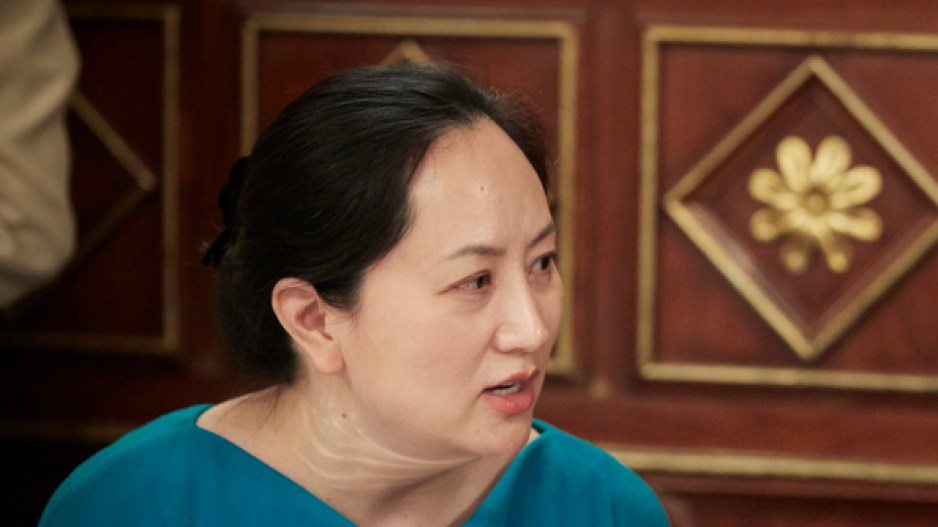The first battle lines in the extradition hearing of Huawei Technologies Co. Ltd. CFO Meng Wanzhou have been drawn after the Chinese tech executive appeared in a Vancouver court today, asking for almost half a year for her defence to prepare the case to seek additional information from Canadian authorities.
At the end of Wednesday's proceedings, B.C. Supreme Court Associate Chief Justice Heather Holmes ruled that the application for additional disclosure - where the defence and Crown counsel will official argue the merits of allowing Meng's team to introduce more material than is normally allowed in an extradition process - will begin on Sept. 23 and last for eight non-consecutive days, ending on Oct. 4.
Meng's defence team originally argued that the scope of the material, which mostly relates to a 3-hour period where Meng was detained at Vancouver International Airport but involves law-enforcement agencies in both Canada and the United States, would require lawyers months to gather - necessitating an Oct. 15 start date for application.
Crown prosecutors, meanwhile, said the court has a responsibility to deal with the case in an expeditious manner, asking for a date no later than late August to begin the application process. Crown prosecutors also say they are worried that delaying the first application to November will delay the rest of the extradition process, including the eventual main "committal" portion of the extradition hearing.
To that end, Holmes said the late September date is a compromise, while also taking the availability of the judge and lawyers on both sides into account.
At Wednesday's hearing, Meng’s defence also raised the main positions it hopes to prove through the additional disclosure, which are: an abuse of process by Canadian authorities (making an arrest with intent contrary to the related law’s intended purpose), a lack of double criminality (fundamental differences between Canada and the United States that would mean Meng’s alleged actions isn’t considered a crime in Canada) and possible political interference (stemming from U.S. President Donald Trump’s comments that Meng may be used in trade negotiations).
Meng appeared to be in good spirits entering the court, smiling and chatting with the court appointed translator prior to the start of the hearing.
The case has generated intense public and media interest due to its geopolitical implications, and a crowd of more than a 100 people - some standing against the courtroom wall because of a lack of seats - are in attendance this morning.
Meng, who was arrested in Vancouver on Dec. 1 while connecting from Hong Kong to Latin America, faces charges of fraud and money laundering relating to contravening U.S. trade sanctions in Iran. Huawei is also accused of stealing trade secrets from companies like T-Mobile USA.
The Huawei CFO - also the daughter of company founder Ren Zhengfei - has denied those charges. Meng also has a parallel civil suit against the Canadian Border Services Agency and the RCMP, saying the Chinese executive was not properly informed of her arrest before evidence - including her computer and mobile devices - was collected.
The case has severely damaged Canada’s bilateral relations with Beijing, with the latter arresting several Canadian citizens and banning imports from two major canola exporters since Meng’s detention.




